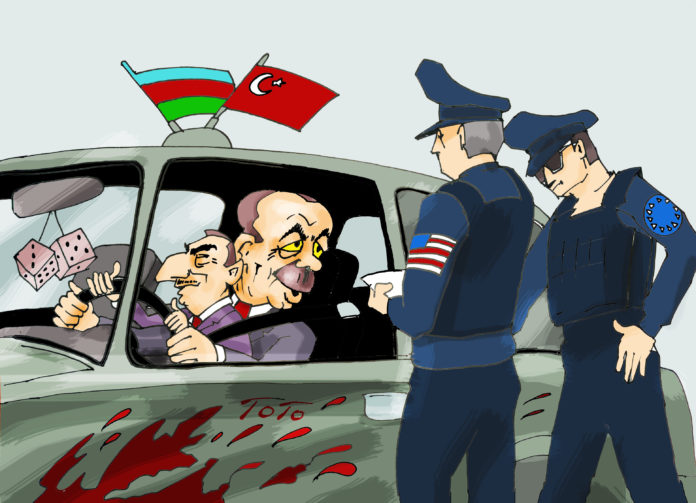The speed and magnitude of the Karabakh war of September 27-November 9 stunned the diplomatic world. Turkey had chosen the right psychological moment to strike. Russia was no less interested in the war, which would allow its peacekeeping forces into Azerbaijan’s territory.
Throughout the war, the US was embroiled in one of its most contentious presidential elections, not that otherwise it would have minded what was happening to Armenia and Karabakh. Secretary of State Mike Pompeo had spared a single sarcastic sentence for the Karabakh war, stating: “We hope Armenians can defend themselves.”
Time was also of essence in Moscow and Ankara, since both were interested in bypassing the Organization for Security and Cooperation in Europe (OSCE) Minsk Group format, which had been handling the simmering Karabakh conflict for the last three decades.
Now, with the elections over, the US is realigning its domestic and world agendas. At this time, the diplomatic world is catching up with the events that took place during the war in the Caucasus and that process will afford an opportunity for Yerevan to address its grievances and insist on its agenda which was ignored by all the stakeholders in the war.
Now, positive statements are being pronounced both in Washington and European capitals, favoring Armenia. The incoming Biden administration has its political plate full. Despite that fact, it has already addressed the Karabakh war and reiterated its pledge for the recognition of the Genocide.
Of course, these statements are more of warning shots to Ankara than rewards for Armenia.










